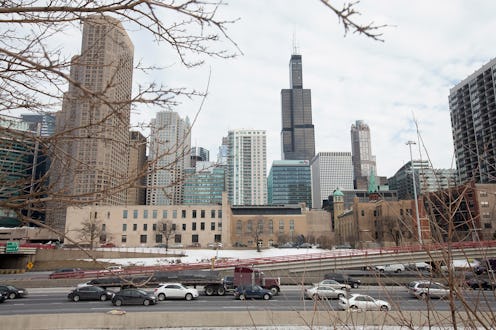News
Illinois Races Could Be A Good Sign For Democrats

For weeks, there's been a burgeoning perception in political circles that the tumult, controversy, scandal, and chaos of the early months of the Trump administration may be having an effect not just in the polls, but at ballot boxes too. Last week, a special election in Kansas' fourth congressional district saw Democrat James Thompson come within five points of Republican Mike Estes, closely contesting a seat that Estes' predecessor won by 30 points just two years ago. And now, Illinois Democrats' strong performance in statewide races is even further suggesting a very favorable political environment for the party in the age of Trump.
As Jennifer Bendery detailed for Huffington Post, Democrats throughout the state of Illinois won big in elections throughout the state, both retaining seats they were expected to hold, and picking up seats in places they never would've expected to under normal political circumstances. For example, in Elgin Township in Kane County, Franklin Ramirez became the first Democrat to ever win the job of supervisor. And moreover, the township completely changed the partisan bearings of its board, going 100 percent Democratic.
There will be another high-profile test of the rumored "blue wave" happening throughout the country in the weeks to come, although it'll be in far less hospitable territory for Democrats than Illinois. Namely, the special election in Georgia's sixth congressional district ― once represented by former Speaker of the House Newt Gingrich ― where voters will choose a replacement for former representative and current HHS chief Tom Price.
That seat is currently being contested by Democrat Jon Ossoff, who is currently leading a crowded field, but may fall short of the outright majority he needs to avoid a runoff. If he ends up in that runoff, his odds would be even longer ― Price previously won his seat by 20 points, speaking to the district's status as a reliable Republican stronghold.
That said, however, the KS-04 special election last week once seemed like a similarly impossible climb, and Thompson nonetheless managed to gain about 25 points on Price's previous 2014 incumbent's margin of victory. In other words, nothing is certain or assured, much less in a time when the Democratic base is absolutely rife with fervor and opposition.
All these local, state, and national special elections are hugely relevant to shaping and understanding the American political reality as it stands now. A useful example is the 2010 Massachusetts special election to replace the late Senator Ted Kennedy, a race that was won by Republican Scott Brown. It was an upset which very nearly derailed the Affordable Care Act, and shook the foundations of the Democratic Party, its complete control of Congress and the executive branch notwithstanding.
That outcome foreshadowed the 2010 midterms, in which the Democrats were handed what then-president Barack Obama described as a "shellacking." So too could more unexpected victories, or even unexpectedly competitive races in deep-red states, hint at a blue wave on the horizon in 2018 ― but those midterms are still more than a year away, and there's no telling what could happen by then.